#debry
Explore tagged Tumblr posts
Text
Wild how some blokes think women only go for the most boring, generic, triangular trust fund men when meanwhile, over in the Dragon Age fandom, we are absolutely feral for this parade of glorious mess
(I did Origins but am limited to ten images…but I see you, Alistair “Swooping is Bad” Theirin and Zevran, defo assassin defo farthest thing from a virgin Antivan Crow disaster bisexual. We also go feral for them.)






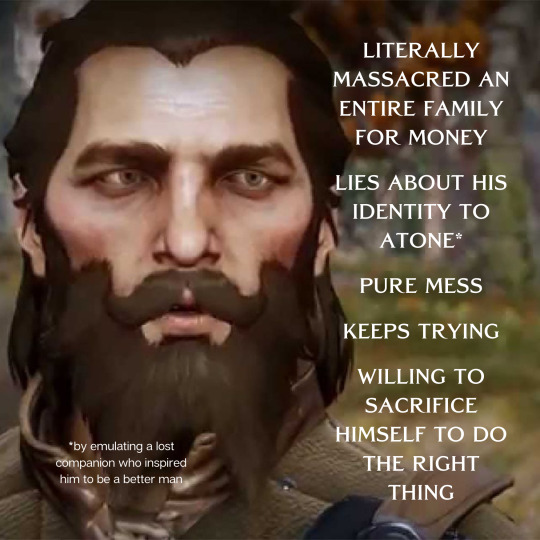
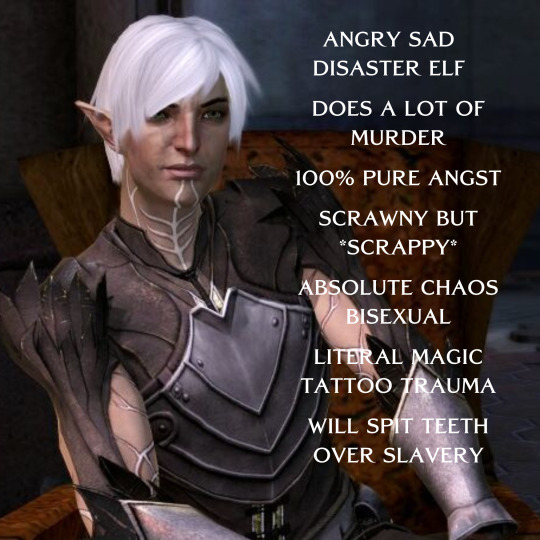

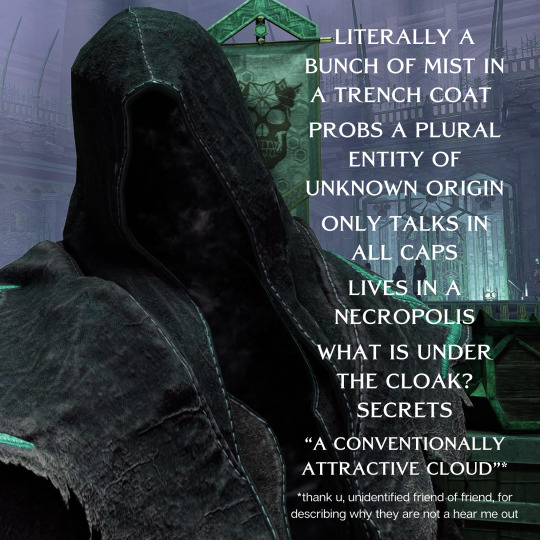
#veilguard spoilers#solavellan#solas x female lavellan#da4 spoilers#datv spoilers#dragon age romance#autocorrect turned fenris into debris I am CRYING#fenris#Blackwall#the iron bull#cullen rutherford#vorgoth#emmrich volkarin#lucanis dellamorte#thom rainier#Anders#feral for Fen’Harel#vorgoth is gender ????? and not a bloke but my point stands
3K notes
·
View notes
Text

had a dream the legendaries got a beast equivalent based on world pollution so i tried to get an idea of what they'd look like.
might draw more of them soon im getting attached to the designs hehe


#my art#ilustration#digital art#artists on tumblr#character design#cookie run#cookie run kingdom#cookie run fanart#cookie run ovenbreak#wind archer cookie#sea fairy cookie#fire spirit cookie#moonlight cookie#millenial tree cookie#oil spill cookie#acid rain cookie#space debris cookie#forest fire cookie#toxic waste cookie#legendary beasts au#ig? idk what else to call it
2K notes
·
View notes
Text

@/ornithyristor on twitter rec'd @mtheland-lockedmartian’s
<<from the inside out (drink the rest)>>
earlier this month and i wanted to draw it but now it's christmas so... sweaters
#megop#transformers#transformers idw#llm’s description of praxus debris scalding optimus’ intakes#that#idk i don’t even have words this poor traumatized man
551 notes
·
View notes
Text
what should happen after the race

#f1#george go be the gpda president you’re meant to be#first not taking the drivers demands seriously and then a piece of debris being left on track#fia a joke#qatar gp 2024
974 notes
·
View notes
Text
alternate surface au inspired by a few ive seen around on tumblr :3
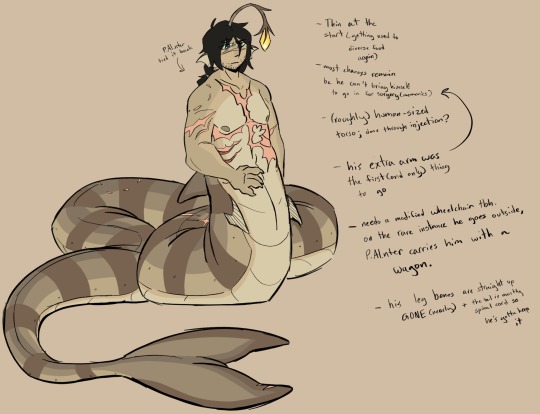
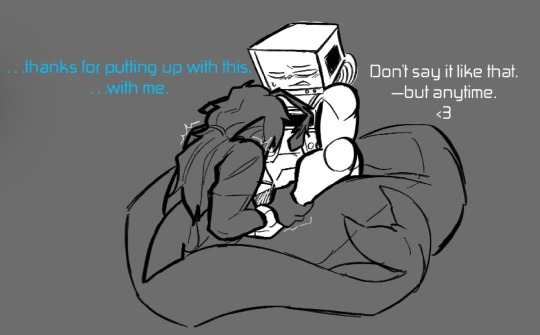
#my art#pressure roblox#roblox pressure#sebastian solace#painter pressure#thought more abt my headcanons for seb’s anatomy and like. lol that tail is not pure muscle hes got guts in there.#that + the fact that there’s spinal cord in there means itd be a bad idea to try and amputate it#the wagon/eventual wheelchair is mostly for outdoor use i imagine.#<- specificallt]y for outdoor surface textures/debris that’d be bad for him to slither on#also. chronic pain have i dont think suddenly shrinking his whole body did much good for that#i imagine he and painter have like. a pool. to help with that and other needs he has now.#but he wouldnt wanna use it for a long while#there was a sort of. disconnect between his idea of freedom from urbanshade vs the reality of it i think.#like. thinking things could. on some level. go back to normal#and not considering that some of his mutations would be irreversible#and having to confront/cope with/accomodate himself about that#seb wants to be normal again but we cant all get what we want can we!#sometimes healing involves working with or around irreversible change buddy!#btw if feligayzed sees this. hiii hii your au was one of the big things that kicked my brain off on this and i wanna make fanart sometime#oh yeah this is . also.#sebpainter#pressure pathways#pathways#wow i dont think ive written a wall of tags that big in a long time. can you tell im having normal feelings about them
943 notes
·
View notes
Text
AU fact :O ‼️
Did anyone ever notice how lower class bots are colors like gray, brownish,


And the higher classes are usually always colorful?


As Cybertronians age, their colors fade with time, sort of like how hair turns gray/white for people. When they die, they lose their colors entirely.
Lower classes are born with grey/brownish colors symbolizes the colorless life of the lower class, and how their daily life is like death, sucking the life out of them, forcing them to grow up faster for survival, etc.
#transformers#au#lore#i know some Decepticons do have more colors and it's because when the war started many of them got acess to abandoned paints left behind-#-in war debris or left behind by autobots. Decepticons like Knockout painted themselves#Starscream Soundwave and Shockwave were originally from the higher classes so they were born with colors.#autobots#decepticons
285 notes
·
View notes
Text

NEED to check these things for fleas. take them to the VET! so sad they can't have deviantart they would have loved deviantart.
#crawling out of the debris of my dead laptop and the horrid presets and graphics on the temp one i am using. coughing up dust. i. like them.#jrwi#jrwi tmk#total monster kill#jrwi lucia#jrwi jin#jrwi everett#everett james peddlebridge#IS IT EVEN THAT. IS IT SPELT LIKE THAT. SHOT IN THE DARK.#just roll with it#avepharts#yeah the emmmoo thing is a reference to that one arthur image im always damn referencing#ENJOYING TMK. it is giving the how to dragon books meets monster hunter to me. except stupider. love weird freak characters.#i also need to mention i was losing it when bizly was describing everett because it was. SO similar to my chip design.#anyway. big fan of the scene where jin is like “oh my bad” and then lucia picks her nose and wipes it on everett. peak.
622 notes
·
View notes
Text
(SPOILERS for Everhearth!!)
Fanart for Everhearth by @butterpony100 :D


i am enjoying every little bit in that fic each moment is so. so precious. AGH they linger in my mind
Kai looks like water here instead of. fire. but shhhhh i struggled okay,,
#NinjagoEverhearthAU#ninjago fanart#ninjago kai#lavashipping#teshfarts#i did NOT want to draw kai with his cowl on lmao#also i feel like the debris in his shoulder is too tiny but oh well.!!!
488 notes
·
View notes
Text

badass mercenary by day, forklift certified by night
#i love u collapsed expressway ost from final fantasy 7 remake. never stop being the best song of all time in any video game ever#crazy how they took an area that was literally just one single shitty little screen full of junk and debris in the original#and turned it into one of the prettiest locations in the entire game with vibes like stars shimmering in the night sky#and then made you operate construction equipment about it.#ffvii#cloud strife#aerith gainsborough#my art <3#my music <3#btw you would not believe how hard i poggers'd when i discovered how well the banjo sample fits into this track. jsyk.
303 notes
·
View notes
Note
fun fact: (spearmaster) moon’s system failures don’t happen when the player isn’t there, (aka on safari). This is probably just code, but it’s cute to think she isn’t afraid to let ‘em happen with someone in the room.

there are no iterator collapses in ba sing safari mode
#i know that no system failure event also means no danger symbols but I needed something to replace the fire lol#the alternative was rumbling - falling debris - or literal fire - but I didn't like how any of those came out#rain world#flickerdoodles#art#anon#ask#rw spoilers#dp spoilers
950 notes
·
View notes
Text
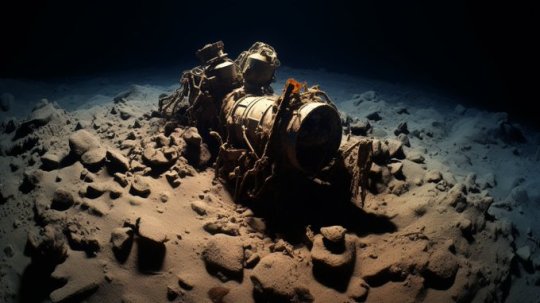
The Submersible Titan Implodes
#The Submersible Titan Implodes#titanic#titan#titan submersible#submarine#oceangate#stockton rush#debris#debris field#debris found#implode#implosion
2K notes
·
View notes
Text
patience being tested. being forced by a bizarre unfortunate situation to adhere to university requirement technicality by taking this simple basic elementary "introduction to environmental history" class.
this class is from facilitators/program which do, like, "history of the American frontier" or "history of fishing and hunting" and still basically subscribe to that old-school twentieth-century idealization and celebration of characters like Teddy Roosevelt and reverence for a mythical arc-of-history-bent-towards-justice narrative of the often-clumsy but ultimately-benevolent US federal government and its mission to "save nature" through the miracle of "sustained yield," while heroic federal land management agencies and "heritage" institutions lead to way, staffed by exceptional individuals (appeals to nostalgia for the frontier and an imagined landscape of the American West; ego-stroking appeals to flattering self-image that center the environmentalist or academic). where they invoke, y'know, ideas like "ecology is important because don't you enjoy cross-country skiing in The Woods with your niece and nephew? don't you like hunting and fishing?" which makes it feel like a time capsule of appeals and discourses from the 1970s. and it invokes concept of "untouched wilderness" (while eliding scale of historical Indigenous environmental relationships and current ongoing colonial violence/extractivism). but just ever-so-slightly updated with a little bit of chic twenty-first-century flair like a superficial land acknowledgement or a reference to "labor histories" or "history from below," which is extra aggravating when the old ideologies/institutions are still in power but they're muddying the water and diluting the language/frameworks (it's been strange, watching words like "multispecies" and "Anthropocene" over the years slowly but surely show-up on the posters, fliers, course descriptions, by now even appearing adjacent to the agri-business and resource extraction feeder programs, like a recuperation or appropriation.) even from a humanities angle, it's still, they're talking at me like "You probably didn't know this, but environmental history is actually pretty entangled with political and social events. In fact, we can synthesize sources and glean environmental info from wacky places like workers' rolls in factories, ship's logs, and poetry from the era." and i'm nodding like YEP.
the first homework assignment is respond to this: "Define and describe 'the Anthropocene'. Do you think 'the Anthropocene' is a useful concept? Why or why not?" Respond in 300 words.
so for fun, right now in class, going to see how fast i can pull up discussion of Anthropocene-as-concept solely from my old posts on this microblogging site.
---
ok, found some
---
I think that the danger in any universal narrative or epoch or principle is exactly that it can itself become a colonizing force. [...] I’m suspicious of the Anthropocene as concept for the very reason that it subsumes so many peoples, nations, histories, geographies, political orders. For that reason, I think ideas like the Anthropocene can be a useful short-hand for a cluster of tangible things going on with the Earth at the moment, but we have to be very careful about how fluid and dynamic ideas become concretized into hegemonic principles in the hands of researchers, policymakers, and politicians. There’s so much diversity in histories and experiences and environmental realities even between relatively linked geographies here in Canada [...]. Imagine what happens when we try to do that on a global scale - and a lot of euro-western Anthropocene, climate change and resilience research risks doing that - eliding local specificities and appropriating knowledge to serve a broader euro-western narrative without attending to the inherent colonial and imperial realities of science and policy processes, or even attending to the ways that colonial capitalist expansion has created these environmental crises to begin with. While we, as a collective humanity, are struggling with the realities of the Anthropocene, it is dangerous to erase the specific histories, power-relations, political orders that created the crisis to begin with. So, I’m glad that a robust critique of the Anthropocene as a concept is emerging.
Text by: Words of Zoe Todd, as interviewed and transcribed by Caroline Picard. “The Future is Elastic (But it Depends): An Interview with Zoe Todd.” 23 August 2016.
---
---
---
The Great Acceleration is the latest in a series of human-driven planetary changes that constitute what a rising chorus of scientists, social scientists, and humanists have labeled the Anthropocene - a new Age of Humans. [...] But what the Anthropocene label masks, and what the litany of graphs documenting the Great Acceleration hide, is a history of racial oppression and violence, along with wealth inequality, that has built and sustained engines of economic growth and consumption over the last four centuries. [...] The plantation, Sidney Mintz long ago observed, was a “synthesis of field and factory,” an agro-industrial system of enterprise [...]. Plantation legacies, along with accompanying strategies of survival and resistance, dwell in the racialized geographies of the United States’ and Brazil’s prison systems. They surface in the inequitable toxic burdens experienced by impoverished communities of color in places like Cancer Alley, an industrial corridor of petrochemical plants running along the Mississippi River from New Orleans to Baton Rouge, where cotton was once king. And they appear in patterns of foreign direct investment and debt servitude that structure many land deals in the Caribbean, Brazil, and sub-Saharan Africa [...]. [C]limatologists and global change scientists from the University of London, propose instead 1610 as a date for the golden spike of the Anthropocene. The date marked a detectable global dip in carbon dioxide concentrations, precipitated, they argue, by the death of nearly 50 million indigenous human inhabitants [...]. The degradation of soils in the tobacco and cotton-growing regions in the American South, or in the sugarcane growing fields of many Caribbean islands, for example, was a consequence of an economic and social system that inflicted violence upon the land and the people enslaved to work it. Such violent histories are not so readily evident in genealogies that date the Anthropocene’s emergence to the Neolithic Revolution 12,000 years ago, the onset of Europe’s industrial revolution circa 1800, or the Trinity nuclear test of 1945. Sugarcane plantations were already prevalent throughout the Mediterranean basin during the late middle ages. But it was during the early modern era, and specifically in the Caribbean, where the intersection of emerging proto-capitalist economic models based on migratory forced labor (first indentured servitude, and later slavery), intensive land usage, globalized commerce, and colonial regimes sustained on the basis of relentless racialized violence, gave rise to the transformative models of plantations that reshaped the lives and livelihoods of human and non-human beings on a planetary scale. [...] We might, following the lead of science studies scholar Donna Haraway and anthropologist Anna Tsing, more aptly designate this era the Plantationocene. [...] It is also an invitation to see, in the words of geographer Laura Pulido, “the Anthropocene as a racial process,” one that has and will continue to produce “racially uneven vulnerability and death." [...] And how have such material transformations sustained global flows of knowledge and capital that continue to reproduce the plantation in enduring ways?
Text by: Sophie Sapp Moore, Monique Allewaert, Pablo F. Gomez, and Gregg Mitman. "Plantation Legacies." Edge Effects. 22 January 2019. Updated 15 May 2021. [Bold emphasis added by me.]
---
---
---
Geologists and other scientists will fight over [the definition of the beginning start-date of the Anthropocene] in scientific language, seeking traces of carbon dioxide that index the worst offenses of European empire which rent and violated the flesh, bodies, and governance structures of Indigenous and other sovereign peoples in the name of gold, lumber, trade, land, and power. [...] The stories we tell about the origins of the Anthropocene implicate how we understand the relations we have with our surrounds. In other words, the naming of the Anthropocene epoch and its start date have implications not just for how we understand the world, but this understanding will have material consequences, consequences that affect body and land.
Text by: Heather Davis and Zoe Todd. On the Importance of a Date, or Decolonizing the Anthropocene. ACME An International Journal for Critical Geographies. December 2017. [Bold emphasis added by me.]
---
---
---
From Aime and Suzanne Cesaire, C. L. R. James, Claudia Jones, Eduoard Glissant, through Sylvia Wynter, Christina Sharpe, and so many others, critical anticolonial and race theory has been written from the specific histories that marked the Black Atlantic. [...] Glissant also reminds us, secondly, of how cunning the absorptive powers of [...] liberal capitalism are - how quickly specific relations are remade as relations-erasing universal abstractions. [...] This absorptive, relations-erasing universalism is especially apparent in some contemporary discourses of […] liberalism and climate collapse - what some call the Anthropocene - especially those that anchor the crisis in a general Human calamity which, as Sylvia Wynter has noted, is merely the name of an overdetermined and specific [White] European man. […] [T]he condition of creating this new common European world was the destruction of a multitude of existing black and brown worlds. The tsunami of colonialism was not seen as affecting humanity, but [...] these specific people. They were specific - what happened to them may have been necessary, regrettable, intentional, accidental - but it is always them. It is only when these ancestral histories became present for some, for those who had long benefitted from the dispossession [...], that suddenly the problem is all of us, as human catastrophe.
Text by: Elizabeth Povinelli. “The Ancestral Present of Oceanic Illusions: Connected and Differentiated in Late Toxic Liberalism.” e-flux Journal Issue #112. October 2020.
---
The narrative arc [of White "liberal humanism"] [...] is often told as a kind of European coming-of-age story. […] The Anthropocene discourse follows the same coming-of-age [...] script, searching for a material origin story that would explain the newly identified trajectory of the Anthropos […]. Sylvia Wynter, W.E.B. DuBois, and Achille Mbembe all showed how that genealogy of [White subjecthood] was [...] articulated through sixteenth- through nineteenth-century [historiographies and discourses] in the context of colonialism, [...] as well as forming the material praxis of their rearrangement (through mining, ecological rearrangements and extractions, and forms of geologic displacements such as plantations, dams, fertilizers, crops, and introduction of “alien” animals). […] As Wynter (2000) commented, “The degradation of concrete humans, that was/is the price of empire, of the kind of [Eurocentric epistemology] that underlies it” (154).
Text by: Kathryn Yusoff. “The Inhumanities.” Annals of the American Association of Geographers, Volume 11, Issue 3. November 2020.
---
---
---
As Yarimar Bonilla suggests in regard to post-Irma-and-Maria Puerto Rico, “vulnerability is not simply a product of natural conditions; it is a political state and a colonial condition.” Many in the Caribbean therefore speak about the coloniality of disaster, and the unnaturalness of these “natural” disasters [...]. Others describe this temporality by shifting [...] toward an idea of the Plantationocene [...]. As Moore and her colleagues write, “Plantation worlds, both past and present, offer a powerful reminder that environmental problems cannot be decoupled from histories of colonialism, capitalism, and racism that have made some human beings more vulnerable [...].” [W]e see that contemporary uneven socioecologies associated with the rise of the industrial world ["the Anthropocene"] are based [...] also on the racialized denial and foreshortening of life for the sacrificial majority of black, brown, and Indigenous people and their relegation to the “sacrifice zones” of extractive industry. [...] [A]ny appropriate response to the contemporary climate emergency must first appreciate its foundations in the past history of the violent, coercive, transatlantic system of plantation slavery; in the present global uneven development, antiblackness, and border regimes that shape human vulnerability [...] that continues to influence who has access to resources, safety, and preferable ecologies [...] and who will be relegated to the “plantation archipelagoes” (as Sylvia Wynter called them) [...].
Text by: Mimi Sheller. “Thinking Beyond Coloniality: Toward Radical Caribbean Futures.” Small Axe (2021), 25 (2 (65)), pages 169-170. Published 1 July 2021. [Bold emphasis added by me.]
---
---
---
Indigenous genocide and removal from land and enslavement are prerequisites for power becoming operationalized in premodernity [...]; it was/is a means to operationalize extraction (therefore race should be considered as foundational rather than as periphery to the production of those structures and of global space). [...] Wynter suggests that we […] consider 1452 as the beginning of the New World, as African slaves are put to work on the first plantations on the Portuguese island of Madeira, initiating the “sugar-slave” complex - a massive replantation of ecologies and forced relocation of people […]. Wynter argues that the invention of the figure of Man in 1492 as the Portuguese [and Spanish] travel to the Americas instigates at the same time “a refiguring of humanness” in the idea of race. [...] The natal moment of the 1800 Industrial Revolution, […] [apparently] locates Anthropocene origination in […] the "new" metabolisms of technology and matter enabled by the combination of fossil fuels, new engines, and the world as market. […] The racialization of epistemologies of life and nonlife is important to note here […]. While [this industrialization in the nineteenth century] […] undoubtedly transformed the atmosphere with […] coal, the creation of another kind of weather had already established its salient forms in the mine and on the plantation. Paying attention to the prehistory of capital and its bodily labor, both within coal cultures and on plantations that literally put “sugar in the bowl” (as Nina Simone sings) […]. The new modes of material accumulation and production in the Industrial Revolution are relational to and dependent on their preproductive forms in slavery […]. In 1833, Parliament finally abolished slavery in the British Caribbean, and the taxpayer payout of £20 million in “compensation” [paid by the government to slave owners for their lost "property"] built the material, geophysical (railways, mines, factories), and imperial infrastructures of Britain and its colonial enterprises and empire. [...] A significant proportion of funds were invested in the railway system connecting London and Birmingham (home of cotton production and […] manufacturing for plantations), Cambridge and Oxford, and Wales and the Midlands (for coal). Insurance companies flourished [...]. The slave-sugar-coal nexus both substantially enriched Britain and made it possible for it to transition into a colonial industrialized power […]. The slave trade […] fashioned the economic conditions (and institutions, such as the insurance and finance industries) for industrialization.
Text by: Kathryn Yusoff. "White Utopia/Black Inferno: Life on a Geologic Spike". e-flux Journal Issue #97. February 2019. [Bold emphasis added by me.]
#sorry for being mean#instructor makes podcasts about cowboys HELP ME#and he recently won a New Business award for his startup magazine covering Democrat party politics in local area HELP#so hes constantly performing this like dance between new hip beerfest winebar coolness and oldfashioned masculinity#but hes in charge of the certificate program so i have to just shut up and keep my head down for approximately one year#his email address is almost identical to mine and invokes enviro history terms but i made mine long before when i was ten years old#so i could log in to fieldherpforum dot com to talk about enviro history of distribution range changes in local reptiles and amphibians#sir if you read my blog then i apologize ive had a long year#and i cant do anything to escape i am disabled i am constantly sick im working fulltime i have NO family i have NO resources#i took all of this schools graduate level enviro history courses and seminars years ago and ran the geography and enviro hist club#but then left in final semester because sudden hospitalization and crippled and disabled which led to homelessness#which means that as far as any profession or school is concerned im nobody im a retail employee#i was doing conference paper revisions while sleeping on concrete vomiting walking around on my cane to find outdoor wifi#and im not kidding the MONTH i got back into a house and was like ok going back to finish the semester the school had#put my whole degree program and department in moratorium from lack of funding#and so required starting some stuff from scratch and now feel like a hostage with debt or worsening health that could pounce any moment#to even get back in current program i was working sixteen hours a day to pay old library fines and had to delicately back out of workplace#where manager was straight up violently physically abusive to her vulnerable employees and threatened retaliation#like an emotional torturer the likes of which i thought existed only in cartoons#and the week i filed for student aid a massive storm had knocked out electricity for days and i was clearing fallen tree debris#and then sitting in the dark in my room between job shifts no music no phone no food with my fingers crossed and i consider it a miracle#sorry dont mean to dramatize or draw attention to myself#so actually im happy you and i are alive
134 notes
·
View notes
Text


(x)
216 notes
·
View notes
Text

We walked out in oolong rain far beyond the city lights
#studyblr#study#home#interiors#interior#spaces#details#london#winter#noguchi#scene#debris#desk#workspace#interior style#stylblr#minimalism#brown#brown moodboard#aesthetic#tones#neutral tones#friday#art#phone photography#coffee#coffeeblr#homewares
702 notes
·
View notes
Text


Peanut inspection team
#sorry the basements a mess her scratch pad leaves cardboard debris everywhere#its mostly for them to fuck around in
506 notes
·
View notes
Text
We’ve just taken a major step toward cleaning up space junk.
On Monday, October 2, the Federal Communications Commission (FCC) in the US issued its first fine for space debris, ordering the US TV provider Dish to pay $150,000 for failing to move one of its satellites into a safe orbit.
“It is definitely a very big symbolic moment for debris mitigation,” says Michelle Hanlon, a space lawyer at the University of Mississippi. “It’s a great step in the right direction.”
But it might be more than just a symbolic gesture by the FCC. Not only does it set a precedent for tackling bad actors who leave dangerous junk orbiting Earth, but it could send shock waves through the industry as other satellite operators become wary of having their reputation tarnished. While the $150,000 FCC fine was modest, Dish’s share price fell by nearly 4% immediately following its announcement, pushing the company’s $3 billion valuation down about $100 million.
The FCC’s action could also help breathe new life into the still-small market for commercial removal of space debris, essentially setting a price—$150,000—for companies such as Astroscale in Japan and ClearSpace in Switzerland to aim for in providing services that use smaller spacecraft to sidle up to dead satellites or rockets and pull them back into the atmosphere...
Another hope is that the FCC’s fine will encourage other countries to follow suit with their own enforcement actions on space junk. “It sends a message out of America taking leadership in this area,” says Newman. “This is starting the ball rolling.”
Today there are more than 8,000 active satellites, nearly 2,000 dead satellites, and hundreds of empty rockets orbiting Earth. Managing these objects and preventing collisions is a huge task, and one that is becoming increasingly difficult as the number of satellites grows rapidly. The worsening situation is largely due to mega-constellations of hundreds or thousands of satellites from companies like SpaceX and Amazon, designed to beam the internet to any corner of the globe...
Hanlon says there are further measures that could be taken to discourage companies from failing to dispose of satellites properly. “Honestly, I would love to see that if you don’t meet your license requirements, you’re banned from launching for a number of years,” she says. “If you’re driving under the influence you can have your license revoked. These are the kinds of measures we need to see.”
Chris Johnson, a space law advisor at the Secure World Foundation in the US, says the loss of reputation for Dish about the satellite situation might be worse than any fine it could have received. “They promised to remove it and they didn’t,” he says. “It’s like the first operator of a car to get a speeding ticket.”
The fall in the company’s share price appears to be indicative of that reputational damage. The fine may not have been as severe as it could have been, but the FCC’s actions can be seen as a warning to other companies to tackle space junk. “This is going to be on their record and their reputation,” says Johnson. “It’s not trivial.”
-via MIT Technology Review, October 5, 2023
Always nice to see steps taken to tackle a problem BEFORE it causes incredibly massive issues
790 notes
·
View notes